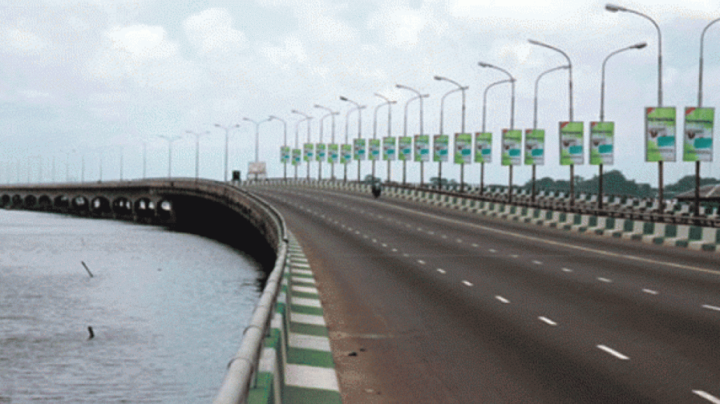The Federal government has officially unveiled plans for an extensive rehabilitation project set to commence on the 11.8-kilometer Third Mainland Bridge in Lagos on November 1, with an expected duration of three months.
This announcement came directly from the Minister of Works, David Umahi, who shared the news during an extensive inspection of various key bridges, including the under deck and lagoon sections of the Third Mainland Bridge, as well as the Carter, Independence, and Falomo Bridges.
The Rehabilitation Strategy: Minimal Discomfort for Road Users

During his inspection, Minister Umahi disclosed the strategy for the upcoming rehabilitation work, assuring that the entire stretch of the Third Mainland Bridge would be resurfaced comprehensively, with a strong commitment to minimizing any discomfort for road users.
To achieve this, the repairs will be carried out primarily during the midnight hours over the weekends. The minister emphasized that this approach would be employed to ensure that the essential maintenance activities do not significantly disrupt the flow of traffic during the busier daytime hours.
The Need for Comprehensive Rehabilitation
Minister Umahi elaborated on the necessity of the rehabilitation project, pointing out that extensive patching of various sections of the bridge’s top surface had led to an uneven surface, which posed a potential safety hazard. Therefore, the decision was made to remove and replace the entire asphaltic covering.
In his own words, “We are going to mill out the excess asphalt and retain only two millimeters.”
Enhancing Aesthetics and Security
The maintenance plan for the Third Mainland Bridge encompasses not only the structural integrity but also the aesthetics of the upper deck components. As part of this comprehensive approach, the bridge will undergo vital upgrades, including the replacement of railings, installation of solar-powered lights, and the implementation of CCTV cameras to bolster security.
Minister Umahi assured road users that the three-month maintenance program would be implemented with the least inconvenience. The work would exclusively take place between midnight and 4 am and only during weekends to avoid major disruptions during the busiest times.
Multiple Contractors for Timely Completion
In light of the urgency of the work, more than one contractor will be engaged to ensure the prompt completion of the rehabilitation project. This endeavor will be divided into phases, with the initial phase primarily focused on enhancing the aesthetics and structural integrity of the bridge. Subsequent phases will include repairs to deflected slabs, bearings, piers, and pile caps.
Addressing Aging Infrastructure
Minister Umahi highlighted the age of most of the bridges, which have exceeded their designed lifespan, as a core reason behind the need for continual rehabilitation. He pointed out that these structures are approximately 60 years old and have faced challenges related to aging, necessitating maintenance to ensure their continued functionality.
Immediate Attention to Marina Shoreline
Minister Umahi expressed particular concern about the deteriorating condition of the Marina Shoreline, which was threatening the foundation of some sections of the Blue Rail Line. Immediate protection measures are underway to address this issue.
The minister stated, “Marina shoreline is gone,” underscoring the urgency of this preservation effort.
Ten-Year Maintenance Responsibility for Contractors
In a bid to ensure the longevity and durability of infrastructure projects, the government is introducing a new practice whereby a ten-year maintenance responsibility will be attached to projects, making contractors responsible for covering repair costs if issues arise within that timeframe. This approach will help to curb instances of shoddy construction practices and enhance the overall quality and longevity of infrastructure projects.
It’s worth noting that contractors responsible for constructing roads that deteriorate within two years may face penalties, including imprisonment, aligning with global standards aimed at reducing substandard construction practices.
Context: Recent Bridge Closure and Upcoming Rehabilitation
This announcement follows the recent 24-hour closure of the Third Mainland Bridge, which took place to facilitate palliative repairs on sections of the bridge plagued by potholes and significant bumps.
The Federal Controller of Works in Lagos State, Mrs. Olukorede Keisha, had previously indicated in a television interview that the Third Mainland Bridge would undergo a comprehensive overhaul to address issues related to the layers of asphalt. This significant rehabilitation project is expected to commence towards the end of January 2024 and is anticipated to span six months.
Support InfoStride News' Credible Journalism: Only credible journalism can guarantee a fair, accountable and transparent society, including democracy and government. It involves a lot of efforts and money. We need your support. Click here to Donate
